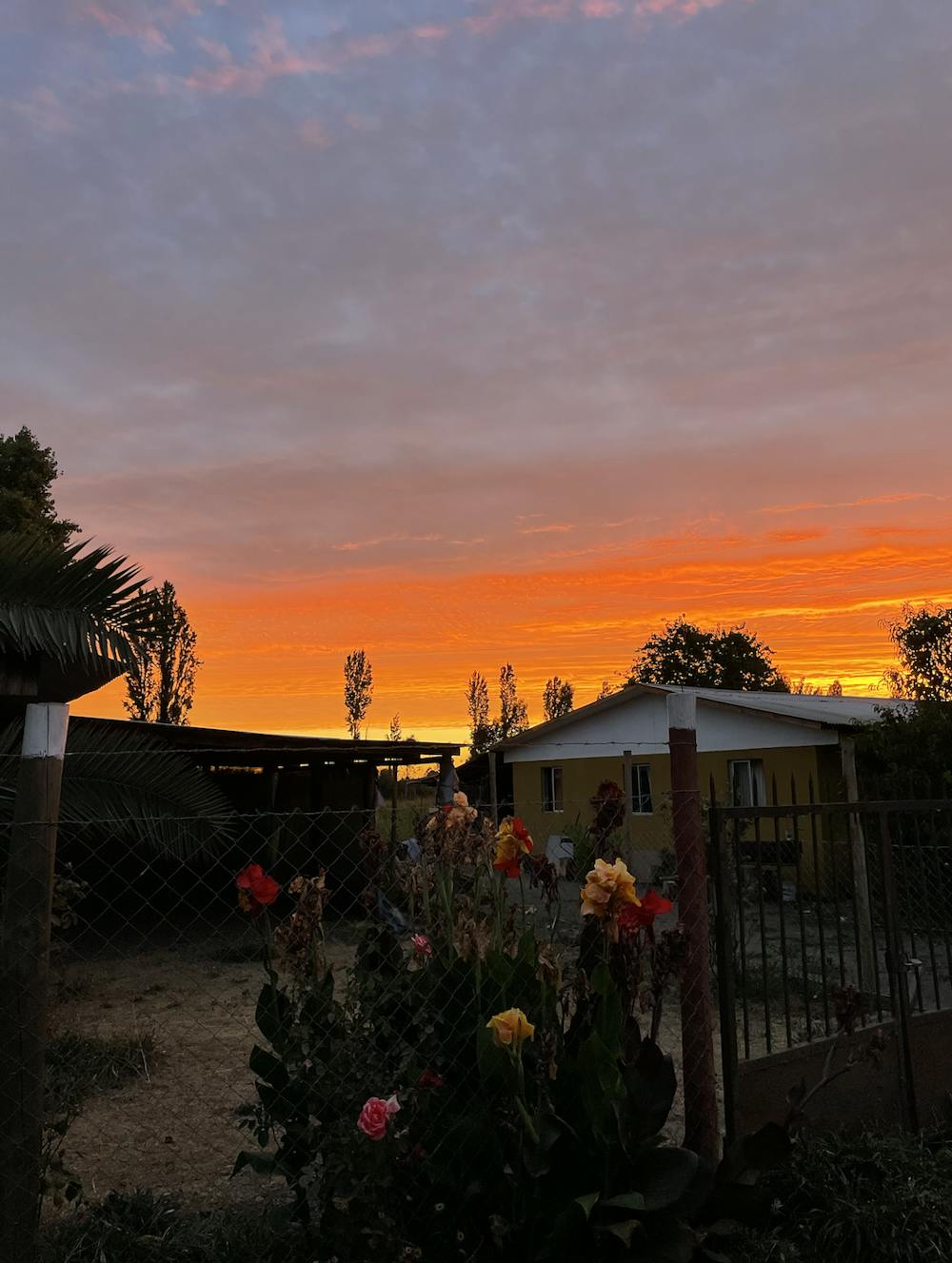Many Notre Dame students have been living out their European escapades: walking along the Seine, allongé and Rousseau in hand, contemplating dying third spaces or newfound leisure time over pints of Guinness, rushing to order a cornetto and heart-adorned cappuccino before an early morning train bound towards an Italian coastal city. Their experiences read like scripts for a blue-tinted indie film or a university advertisement for study abroad.
My experience in Chile has also been surreal, but not like that.
It began the first day of the pre-program. I was one of the last ones to join the group for our welcome lunch, located in the basement of a hotel in the middle of Santiago. Our first meal in Chile was at a “Venetian” restaurant, decorated with New York memorabilia (think Mets, Sinatra, American traffic signs and the Flatiron Building) with vaguely Chilean food that was somehow neither fresh nor flavorful.
The next day, 21 of us, the pre-program coordinator, two chefs, the driver, our yoga instructor and all of our luggage piled into a bus bound for the countryside. The drive was beautiful, passing through agricultural lands framed by the distant Andes, but it was challenging to enjoy as we grew anxious for restrooms and food. After several hours, a 4 p.m. lunch and a stop at a tiny grocery store in the middle of nowhere, we finally arrived at our humble abode for 10 days: an old monastery in the mountains of Vilches, far away from civilization and phone service.
Let me paint you a picture of my room in Vilches.
Imagine a small, dusty room with a tiny window that a monk inhabited forty years ago. However, this is not just any old room. It comes with many friends, including scorpions, moths, some brown bugs that I still haven’t identified, arañas de rincón (tiny corner spiders that are in fact lethal), and arañas pollito (tarantulas which are very big but can’t kill you). I had a big scare when we tried to shoo a tarantula off my door and right when we thought we got it, it climbed into a hole in the wall.
Each night was a mental practice of meditation, trying to not think about my roommates and the possibility of my impending death.
The average day in Vilches went a little like this: at 8 a.m., someone would ring the bell, summoning us to a breakfast of bread and tea. We would rotate through four classes: PE, Spanish, culture and history. This looked like doing workout circuits, analyzing the lyrics of what is essentially the Chilean version of “WAP,” singing songs, doing dances and forgoing class for an hour of “chisme” (translated as “gossip”) with our history professor, all in the middle of nowhere with a bunch of gringo kids who are speaking to each other in Spanish.
After a traditional Chilean lunch, we had free time, which pretty much always meant making the trek to the río for some sunbathing, chisme and maybe jumping into the cold water. We would then reconvene around five for an activity such as a poetry reading, an acting presentation or a treasure hunt. It was all very much reminiscent of sleep-away summer camp activities.
We would then have dinner, participate in another activity and have the rest of the night free. The group is very musically inclined, so many nights we had a little jam session, using guitar tabs people had downloaded while at the río. One night, we went into the central courtyard with our professors and, aided by the dark sky in the mountains, they pointed out the UFOs — a much funnier word in Spanish — which coincidentally look a lot like passing planes and satellites.
At the end of ten days, dirty and anxious for civilization, we once again piled our stuff back onto the bus and made our way to Curepto, a small farming town near the beach, for the rest of the pre-immersion. I traded in my monk’s quarters for a shared room with a host family, with the idea that we would learn about how rural Chilean families live.
During our time in Curepto, we mostly spent our days hanging out with our host families, going on field trips, playing soccer with some of the local Chileans and drinking wine at one of the vineyards. Practically every night, everyone in town would go to the cultural fair that was happening that week for music, drinks and empanadas. Curepto was the perfect way to transition from the complete isolation of Vilches to the bustling hub of Santiago.
Now that I’m settled into Santiago, my study abroad experience has become more metropolitan, better resembling the experiences of my European counterparts. While I sleep a little better, no longer having to worry about spiders killing me in my bed, I’ll always be thankful for my “campesina” experience.
Kat Regala is a junior studying in the program of liberal studies with minors in computing and digital technology and science, technology and values. She originally hails from Naples, Florida, but loves traveling. When not reading or writing, you can find her drinking coffee, practicing yoga or binge-watching reality television. You can contact Kat at kregala@nd.edu
Kat Regala is a junior studying in the program of liberal studies with minors in computing and digital technology and science, technology and values. She originally hails from Naples, Florida, but loves traveling. When not reading or writing, you can find her drinking coffee, practicing yoga or binge-watching reality television. You can contact Kat at kregala@nd.edu.










